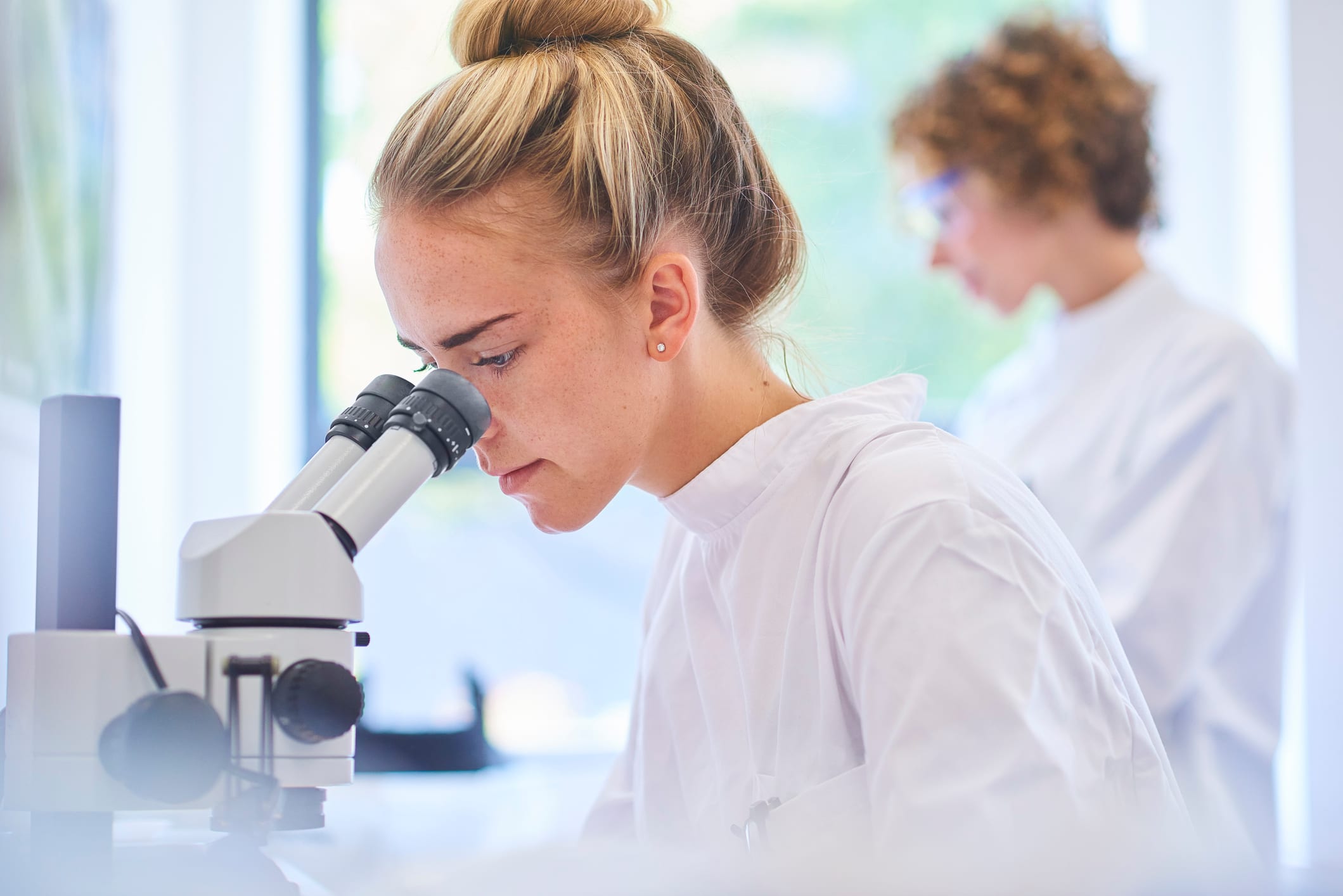

Informazioni sul Fondo di ricerca della Lega polmonare
Le origini
Lo standard elevato della medicina, la stabilità politica e la fama della ricerca universitaria costituiscono in Svizzera una solida base per una ricerca di qualità elevata. Ciò riguarda in particolare le tematiche legate alla salute polmonare, cosa che ha condotto alla formazione, presso alcuni centri svizzeri, di gruppi di ricerca riconosciuti a livello internazionale, in ambienti universitari e anche non accademici. Si tratta di riservare maggior considerazione alla ricerca più competitiva nel campo della salute polmonare, assicurandole al contempo una base finanziaria.
In generale, le malattie polmonari sono in espansione. La BPCO (bronco pneumopatia cronica ostruttiva) oggi è la quarta causa più frequente di morte. Va però tenuto conto che entro il 2020 la BPCO diventerà la terza causa più frequente di morte. Tuttavia, di pari passo con l’allungamento dell’aspettativa di vita, cresce anche l’incidenza di altre malattie polmonari. Nel corso degli ultimi anni, riguardo al caso dell’asma bronchiale, il trattamento è stato migliorato grazie a una ricerca innovativa, nel senso che le persone colpite possono ora godere di una normale qualità di vita, preservando completamente l’attività professionale e sociale.
D’altro canto, non esiste ancora alcun trattamento causale per l’asma bronchiale. Inoltre, vengono continuamente rilevati sviluppi molto gravi, per i quali le forme di terapia stabilite non hanno sufficiente impatto. Anche nell’ambito delle malattie polmonari rare e maligne, nel corso degli ultimi anni la scienza ha compiuto progressi che devono essere consolidati con il proseguimento della ricerca.
In generale, per quanto concerne la ricerca scientifica su tutte le malattie polmonari, vi sono ancora parecchie sfide da affrontare in diversi campi: prevenzione, qualità dell’aria, epidemiologia, scienze sociali, economia sanitaria e pneumologia clinica. Diventa quindi sempre più importante sostenere di pari passo la ricerca di base sperimentale e la ricerca clinica applicata.
La Lega polmonare svizzera, cosciente di una serie di sfide, nel 2013 ha istituito un Fondo di sostegno alla ricerca deputato a uno scopo specifico e destinato al sostegno della ricerca nella sfera di competenza della Lega polmonare svizzera e dei suoi membri. Il Fondo di sostegno alla ricerca della Lega polmonare svizzera persegue il sostegno finanziario delle attività di ricerca di grande importanza per l’opera della Lega polmonare svizzera e dei suoi membri e incentrate sul tema della prevenzione e del trattamento di malattie polmonari e insufficienza respiratoria.
Procedura
Il Fondo di sostegno alla ricerca prevede i due modi seguenti di procedere:
A procedura aperta, con cui la comunità scientifica viene invitata pubblicamente a presentare una domanda di sostegno per un progetto di ricerca nell’ambito delle malattie polmonari, con libertà di scelta riguardo a tematiche e metodologia. La commissione esamina le richieste e infine prende la decisione definitiva per le rispettive assegnazioni, tenendo conto del budget disponibile del fondo;
A procedura su temi specifici, la comunità scientifica viene invitata pubblicamente a presentare progetti di ricerca su una delle tematiche centrali stabilite dalla commissione di esperti. La commissione di ricerca prende in esame le richieste e sottopone alla commissione di esperti le diverse domande di sostegno per l’approvazione definitiva.
Qualità
La Lega polmonare svizzera, cosciente di una serie di sfide, nel 2013 ha istituito un Fondo di sostegno alla ricerca deputato a uno scopo specifico e destinato al sostegno della ricerca nella sfera di competenza della Lega polmonare svizzera e dei suoi membri. A questo scopo, la Lega polmonare svizzera e le Leghe polmonari cantonali, la Società svizzera di pneumologia (SSP) e la Società svizzera di pneumologia pediatrica (SSPP) cooperano strettamente fra loro.
Il Fondo di sostegno alla ricerca della Lega polmonare svizzera persegue il sostegno finanziario delle attività di ricerca di grande importanza per l’opera della Lega polmonare svizzera e dei suoi membri e incentrate sul tema della prevenzione e del trattamento di malattie polmonari e insufficienza respiratoria.
Finanziamento
Il Fondo di sostegno alla ricerca della Lega polmonare svizzera, istituto nel 2013, sostiene ogni anno numerosi progetti di ricerca. La Commissione di ricerca, composta da rinomati esperti, decide i progetti da sostenere nell’ambito della ricerca sperimentale di base e della ricerca clinica applicata riguardanti la salute polmonare.
Il Fondo di sostegno alla ricerca è finanziato dalla Lega polmonare svizzera e dalle leghe cantonali attraverso un contributo annuo. Per garantire la copertura finanziaria necessaria ad attuare i progetti prescelti dalla Commissione di ricerca, la Lega polmonare svizzera deve ricorrere anche a contributi di sostegno. Vi ringraziamo se vorrete anche voi sostenere la ricerca!
Sì, vorrei sostenere il fondo di ricerca o un progetto di ricerca specifico.
Membri della commissione di ricerca
Il Fondo di sostegno alla ricerca della Lega polmonare Svizzera persegue il sostegno finanziario delle attività di ricerca di grande importanza per l’opera della Lega polmonare Svizzera e dei suoi membri e incentrate sul tema della prevenzione e del trattamento di malattie polmonari e insufficienza respiratoria.
- Prof. Dr. med. Otto Schoch, President of the Research Commission, Head of Pneumology and Sleep Medicine, Cantonal Hospital St. Gallen
- Prof. Dr. med. Dr. phil. Katrin Hostettler Haack, Vice President of the Research Commission, University Hospital Basel
- Dr. med. Grégory Berra, University Hospitals Geneva and University Hospital Lausanne
- PD Dr. med. PhD Thomas Gaisl, University Hospital Zürich, clinic for pneumology
- PD Dr. med. Gunar Günther, Inselspital Bern, Department of Pulmonology
- Dr. med. Angela Koutsokera, University Hospital Lausanne and University of Lausanne
- Prof. Dr. med Claudia Kuehni, University of Bern
- Prof. Dr. med. Philipp Latzin, Inselspital and University of Bern
- Dr. med. Jean-Marie Schnyder, Director of the Lucerne Höhenklinik Montana
Progetti finanziati
2024
Micro/Nanoplastics in the respiratory tract – a human in vitro inhalation model
PD. Dr. phil. Nat. Fabian Blank,
Lung Precision Medicine Program, Department of BioMedical Research, Pulmonary Medicine Adults, Bern University Hospital, Bern, SwitzerlandManagement of upper airway disease in PCD: current practices and development of guidelines
PD Dr Myrofora Goutaki, MD-PhD,
Institute of Social and Preventive Medicine, University of Bern, SwitzerlandThe Digital COPD Coach for patient education and self-management - a multicenter mixed-method study
PD Dr. med. Sabina A. Guler,
Department of Pulmonary Medicine, Allergology & Clinical Immunology, University Hospital Inselspital Bern, SwitzerlandLuHeNAM - Post tuberculosis lung health in Namibia
PD Dr. Gunar Günther,
Inselspital Bern, University of Namibia
2023
English only:
Regulation of Pulmonary GM-CSF in Homeostasis and in the Context of Allergic Airway Inflammation
Christoph Schneider, University of Zurich
Key messages:
Barrier tissues, such as the lung, comprise different myeloid cell types with diverse functions. The resident macrophage compartment in the alveoli, known as alveolar macrophages, emerges early during lung development in a process that is dependent on the cytokine GM-CSF. Other myeloid cells, called dendritic cells (DCs), also move into organs like the lungs and are constantly replenished from precursors in the bloodstream. DCs are particularly important in inducing certain types of immune responses by presenting antigens to T cells, including those derived from common allergens. Using elegant transgenic mouse models, our research identified new mechanisms of cell-cell interaction through GM-CSF in the lung, which link epithelial cell GM-CSF production, DCs, and allergic airway inflammation.
Cell specific targeted gene editing of hepatocytes for treatment of Alpha1 antitrypsin Deficiency
Tiziana Cremona, University of Bern
Key messages:
Alpha1 antitrypsin (AAT) deficiency, an autosomal codominant disease resulting from point mutations in the SERPINA1 gene, is associated with liver and lung diseases. Currently, treatment options are limited, highlighting a significant unmet need for drug development efforts to address the challenges associated with living with AATD. Our aim is to offer a system which allows for permanent gene correction for the treatment AATD. This can be achieved by gene editing, which holds immense potential for various applications. In medicine, it offers the promise of treating genetic disorders by correcting disease-causing mutations. It also enables the development of more precise and personalized therapies, known as precision medicine. Our approach involves the production of cell-specific extracellular vesicles (EVs), serving as a delivery system to target hepatocytes and deploy base editors. When the base editor is targeted to a specific region of the genome, the deaminase enzyme converts one base to another within a small window around the target site. Base editors offer several advantages over traditional gene editing techniques. They are more precise and have a lower risk of off-target effects since they do not induce double-strand breaks. Additionally, they can correct point mutations without introducing foreign DNA, making them suitable for therapeutic applications that aim to minimize genomic alterations. I am continuously working to improve the efficiency, specificity, and versatility of base editing technologies to expand their utility in gene therapy and develop a tool for precision medicine.
Targeting cytosolic DNA sensors cGAS/STING and AIM2 during lung ex vivo perfusion to reduce posttransplant allograft inflammation and damage
Jérôme Lugrin, Centre Hospitalier Universitaire Vaudois CHUV
Key messages:
The cGAS/STING system, which aims at the detection mislocalized DNA within the cells, is activated by prolonged exposition to a cold temperature. Activation of this system promotes inflammation and cell death. Using cellular and animal models, we identified that cold preservation of rat lungs and lung cells at 4°C activated cGAS/STING in conditions that mimic lung preservation before transplantation. Moreover, prolonged cold preservation triggered a particular type of cell death named necroptosis that was dependent on cGAS/STING. Therefore, we propose that targeting cGAS/STING during lung preservation might have beneficial effects on the quality of transplanted lungs by reducing inflammation and cell death.
2022
Unraveling the protective role of endothelial cell MAGI1 in lung fibrosis
Dr. Jimmy Stalin, University of Fribourg
Project description (in German)
Project description (in English)
Comparison of two modes of the insufflator/exsufflator technique in paediatric subjects with neuromuscular disease: a randomised multi-crossover trial
PD Dr. med. Thomas Riedel, University Children's Hospital, Inselspital
Project description (in German)
Project description (in English)
Linking the newly identified androglobin to pulmonary and tracheal ciliary function
Dr. Anna Keppner, University of Fribourg
Project description (in German)
Project description (in English)
Effect of a digital lifestyle intervention on health-related quality of life in patients with non-small cell lung cancer (NSCLC) after rehabilitation: a multicenter randomized controlled trial
Prof. Dr. sc. techn. habil. Kai-Uwe Schmitt, Bern University of Applied Sciences
Final lay summary (in English)
Project description (in German)
Project description (in English)
Point-of-care ultrasound for the diagnosis and risk stratification of lower respiratory tract infections in TB endemic regions: a multicenter prospective cohort study
Dr. med. Dr. phil. Noémie Boillat-Blanco, Lausanne University Hospital (CHUV)
Project description (in German)
Project description (in English)
2021
Cell specific targeted gene editing of hepatocytes for treatment of Alpha1 antitrypsin deficiency
Dr. Tiziana Cremona, Universität Bern
Project description (in German)
Swiss registry of children with home respiratory support
Dr. Sophie Guérin, Universitätsspital Lausanne, CHUV
Project description (in German)
Project description (in French)
Targeting cytosolic DNA sensors cGAS/STING and AIM2 during lung ex vivo perfusion to reduce posttransplant allograft inflammation and damage
Dr. Jérôme Lugrin, Universitätsspital Lausanne, CHUV
Project description (in German)
Project description (in French)
Obstructive Sleep Apnea and the risk of COgnitive DEcline in the elderly population – The OSA-CODE study
Dr. Nicola Marchi, Universitätsspital Lausanne, CHUV
Project description (in German)
Project description (in French)
Project description (in Italian)
Phenotypes of primary ciliary dyskinesia and their association with genetic mutations and disease progression
Dr. Eva Sophie Lunde Pedersen, Universität Bern
Project description (in German)
Regulation of pulmonary GM-CSF in the context of allergic airway inflammation
Prof. Christoph Schneider, Universität Zürich
2020
Drug tolerance in chronic respiratory infections
Dr. Lucas Boeck, University Hospital Basel
Project description (in German)
Altitude-induced breathing, sleep and cognitive impairments in healthy individuals older than 40 years and effect of preventive acetazolamide. Randomized, placebo-controlled, double blind trial.
Dr. Michael Furian, University Hospital Zurich
Project accomplished (in German)
Efficacy of ready4life - a digital coaching program for addiction prevention among vocational school students in Switzerland
Dr. Severin Haug, University of Zurich
Project description (in German)
Effects of hypoxia on pulmonary hemodynamics at rest and during exercise – implications and therapeutic strategies for patients with COPD
Dr. Mona Lichtblau, University Hospital Zurich
Project description (in German)
A simplified method of twitch mouth pressure measurement for the diagnosis of diaphragmatic dysfunction
Dr. Georgia Mitropoulou, University Hospital Lausanne
Project description (in German)
Lung microbiome in obesity-associated asthma: cause or consequence?
Dr. Niki Ubags, University Hospital Lausanne
Project description (in German)
Effects of air pollution on lung function and lung growth in Swiss children
Dr. Jakob Usemann, University Children’s Hospital Zurich
2019
Role of alternative RNA splicing in the regulation of antiviral responses of the respiratory epithelium.
Dr. Marco Alves, University of Bern
Project accomplished (in German)
Predicting asthma attacks in Swiss children: a clinical cohort study.
Prof. Dr. med. Cristina Ardura-Garcia, University of Bern
Project description (in German)
Project description (in French)
Tailored intervention on nutrition and exercise for obstructive sleep apnea patients treated with CPAP: TINE STUDY
Dr. Mathieu Berger, University Hospital Lausanne
Project description (in German)
Project description (in French)
Establishing a Swiss National Lung Cancer Screening Program
Prof. Dr. med. Christophe von Garnier, University Hospital Lausanne
Project accomplished (in German)
Full project report (in English)
Patient-specific, stem-cell derived lung organoids - a step to precision medicine
Prof. Dr. Thomas Geiser, University Hospital Bern
Project description (in German)
Project description (in French)
CT-based radiomics texture signature for the prediction of drug response to nintedanib in experimental lung fibrosis
PD Dr. med. Britta Maurer, University Hospital of Zürich
2018
Effect of Hepatocyte growth factor on regulatory T cells in bleomycin injured rat lung.
Dr. Fabian Blank, University of Bern
Project accomplished (in German)
Lung microbiota signatures in the light of frailty in lung transplant recipients: bacteria-virus-host interactions from bench to bedside.
Dr. med. Angela Koutsokera, Lausanne University Hospital
Project accomplished (in German)
A genome wide screen for drug resistance and drug tolerance mechanisms in Mycobacterium abscessus - a pathogen referred to as «antibiotic nightmare».
Prof. Peter Sander, University of Zurich
Project accomplished (in German)
Project accomplished (in French)
Project accomplished (in Italian)
This project is supported by the Georg und Bertha Schwyzer-Winiker Stiftung
Comparative effects between electronic cigarette vapour and cigarette smoke on inflammation and wound healing in human gingival keratinocytes.
Prof. Patrick Schmidlin, University of Zurich
2017
A novel auto-regulatory mechanism causing drug resistance of airway wall remodelling and mitochondrial activity in asthma.
Dr. Michael Roth, University Hospital Basel
Project accomplished (in German)
Early life exposure to nicotine affects the repair capacity of lung in adult mice.
Prof. Dr. Constance Barazzone-Argiroffo, University Hospital of Geneva
Project accomplished (in German)
Assessment of novel therapeutic strategies for the treatment of allergic asthma.
Dr. Alexander Eggel, University of Bern
Project accomplished (in German)
This project is supported by the Uniscientia Stiftung
Fluctuation dynamics of biomarkerst o predict exacerbations in asthma: A stepping stone for early intervention.
Prof. Dr. med. Urs Frey, University Children's Hospital Basel
Project accomplished (in German)
Project accomplished (in French)
Project accomplished (in Italian)
Effect of a long-term home-based exercise training using minimal equipment vs. usual care in COPD patients: A multicentre randomized controlled trial.
Dr. Anja Frei, University of Zurich
Project accomplished (in German)
This project is supported by the Uranus Stiftung
Molecular regulation of innate lymphoid cell type 2 in lung disease.
Dr. Philippe Krebs, University of Bern
Project accomplished (in German)
This project is supported by the Stiftung Lindenhof
2016
Investigation into air transmission of highly pathogenic viruses.
Assoc. Ph.D. Stefan Kunz, Institute of Microbiology, University Hospital Lausanne
Project accomplished (in German)
The microenvironment of stem cells in the fibrotic lung – does it matter?
PD Dr. med. / Dr. phil. Nat. Katrin Hostettler Haack, Department of Biomedicine and Clinic of Respiratory Medicine, University Hospital Basel
Project accomplished (in German)
Integrated care of co-morbidities versus standard care after acute hypercapnic respiratory failure in the intensive care unit: A Randomized Controlled Trial
Dr. Dan Adler, Pneumology Department, University Hospital Geneva
Project description (in German)
Support by smartphone app and carbon monoxide self-monitoring for smoking cessation: A randomised controlled trial nested into the Swiss HIV Cohort Study
Prof. Dr. med Heiner Bucher, Basel Institute of Clinical Epidemiology and Biostatistics, University Hospital Basel
Project accomplished (in German)
Unravelling protective signalling pathways in acute lung injury using a novel lung-on-chip technology
PD Dr. med. Stefan Freigang, Institute of Pathology, University of Bern
Project accomplished (in German)
This project is supported by the Uniscientia Stiftung
Impact of a pharmaceutical care intervention to improve adherence of inhaled medication in asthma and COPD patients
Prof. Dr. med Jörg Leuppi, University Clinic of Medicine, Cantonal Hospital Baselland
2015
Reduction of corticosteroid use in outpatient treatment of exacerbated COPD – a randomized, double-blind, non-inferiority study
Prof. Dr. med. Jörg Leuppi, Hospital of Baselland
Project description (in German)
This project is supported by the Parrotia Stiftung
Obstructive Sleep Apnoea in Ehlers-Danlos Syndrome
Prof. Dr. med. Malcolm Kohler, Division of Pulmonology, University Hospital Zurich
Natural history of lung cancer in Switzerland and cost-effectiveness of low-dose computed tomography screening
Prof. Dr. med. PhD Milo Puhan, Epidemiology, Biostatistics and Prevention Institute (EBPI), University of Zurich
Project accomplished
This project is supported by the Spendenstiftung Bank Vontobel
Azithromycin for immunomodulatory treatment of idiopathic pulmonary fibrosis – a clinical trial
Dr. med. Funke-Chambour, Inselspital Bern, Department of Pulmonology
Project accomplished (in German)
This project is supported by the Stiftung Lindenhof
Congenital Cystic Adenomatoid Malformations, a translational study: a key to understand lung development in 2015?
MD PhD Isabelle Ruchonnet-Métrailler, Pathology and Immunology Department, Medical Faculty of Geneva
Project accomplished (in German)
This project is supported by the Fiona Stiftung and the Werner Geissberger Stiftung
Effects of chronic cigarette smoke exposure and pathogen infection on microbial colonization and emphysema in mice
DVM PhD / PD Dr. med.vet. Dr. phil. Charaf Benarafa, Theodor Kocher Institute, University of Bern
Project accomplished (in German)
Glycosaminoglycans as systemic markers for acute exacerbations in chronic obstructive pulmonary disease
Prof. Daiana Stolz, Clinic of Pulmonary Medicine and Respiratory Cell Research, University Hospital Basel

